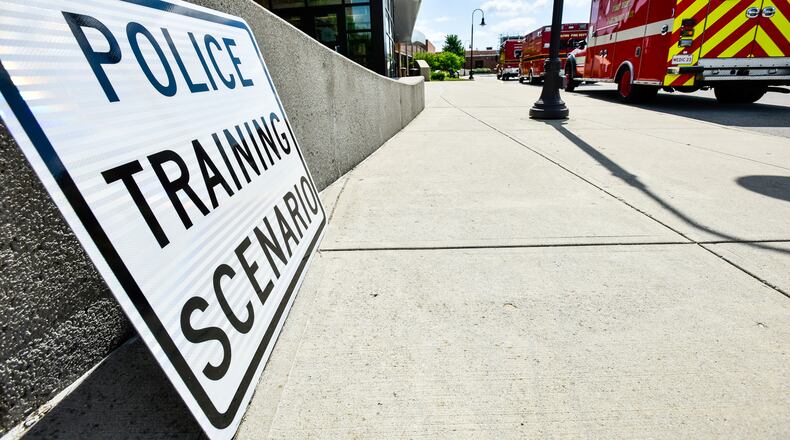But the vote tally late Tuesday evening showed the proposed property tax increase losing by a margin of 53 to 47 percent, according to unofficial ballot tallies by the Butler County Board of Elections with all precincts reporting.
The defeat means millions of dollars of funding that would have gone to helping protect school building from violent attacks - and provide mental health counseling – for more than 28,000 students in the five districts will now have to come from other funding sources in each of the five school systems.
An Ohio law, enacted in March in the wake of deadly school shootings in Florida, Texas and elsewhere, created the new school taxing option that required participating districts to agree to form a taxing district to put the security tax on the ballot.
The tax hike drew unprecedented opposition from some local office holders.
Butler County Sheriff Richard Jones was the first major office holder to blast the proposed, 10-year school tax as “a money grab” last month even before the five districts filed to place the levy on the ballot.
Also joining the chorus of rivals were Butler County Auditor Roger Reynolds, Treasurer Nancy Nix, Ohio Rep. George Lang (R-West Chester Twp.) and former Fairfield Board of Education member Arnie Engel.
The Butler County taxing district was only the second formed in Ohio under the new law, with a group of Stark County schools suffering an overwhelming defeat of a similar levy this past May.
“I’m frustrated because they (districts) moved so quickly,” Reynolds previously told the Journal-News. “And they are doing it backwards because they didn’t first go to their constituents and ask them what they want. They didn’t put out their (security plans) on what the money would pay for first.”
Leaders of the five school districts who pushed for the tax increase had said the new funds for mental health counselors for troubled students in some ways outweighed getting more armed guards.
“We (superintendents) have been having lots of conversations about students’ readiness to learn, and mental health is a huge barrier for the students we serve and it’s a huge barrier for learning,” Fairfield Superintendent Billy Smith said in an August press conference.
About the Author
